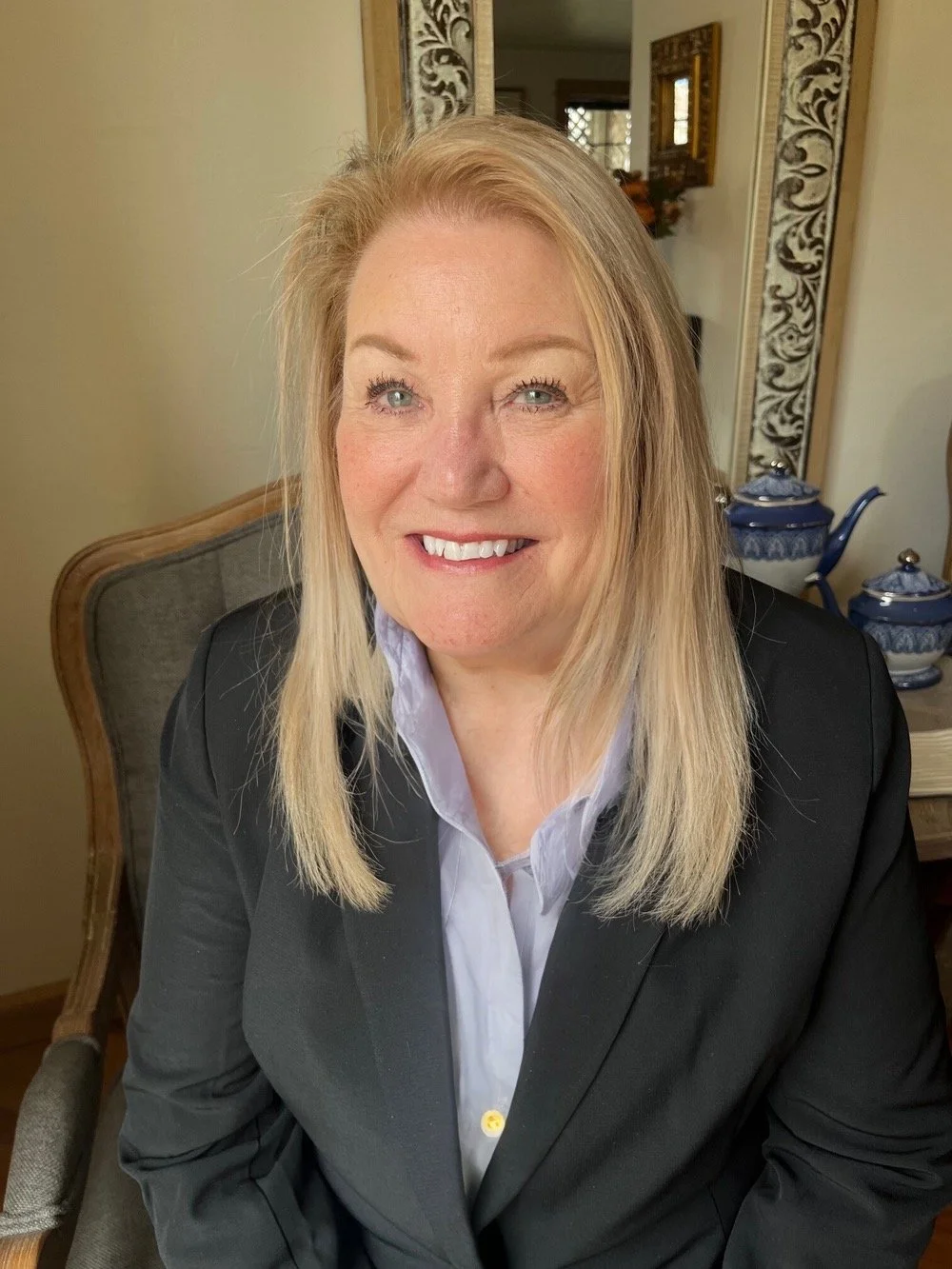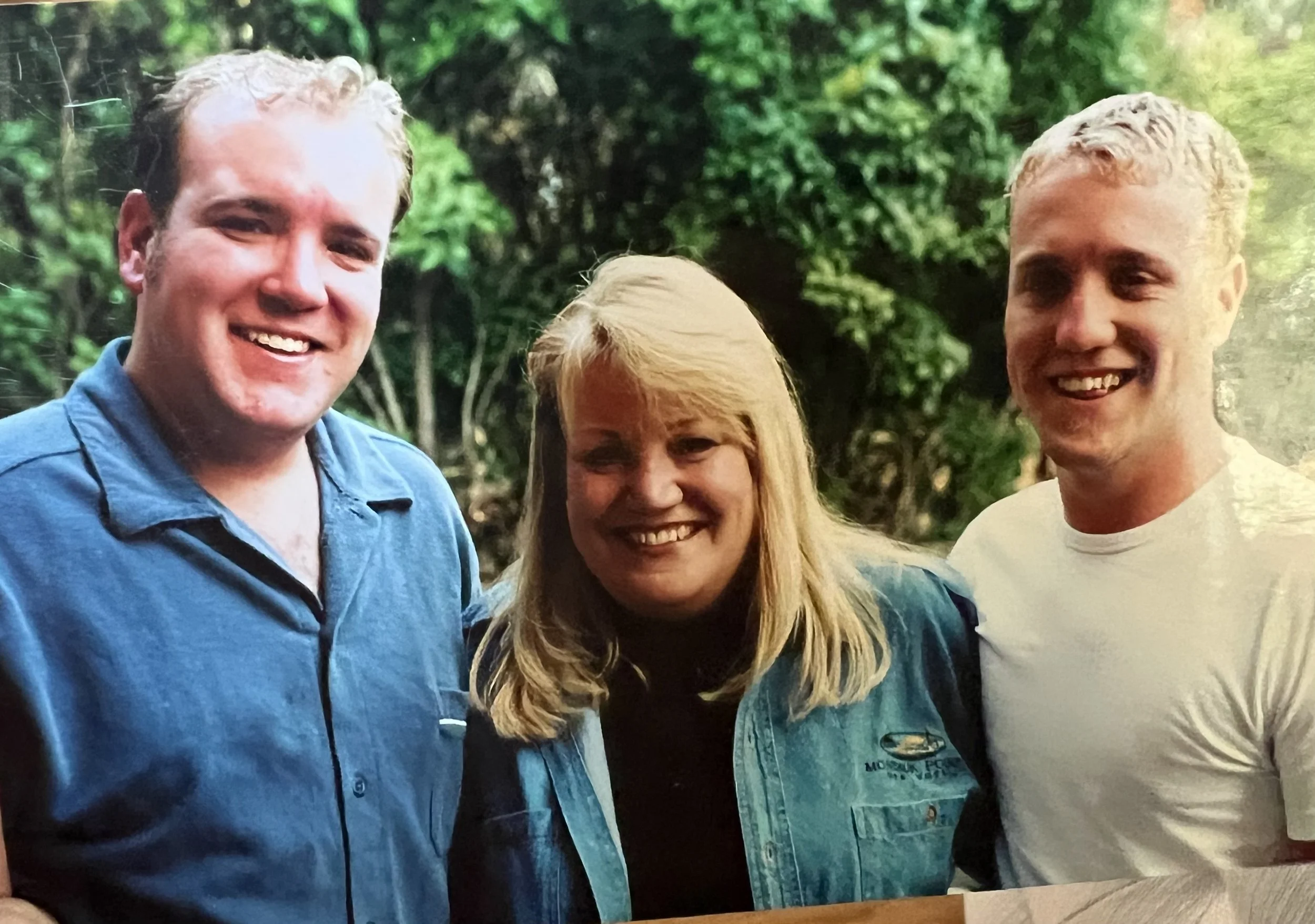Meet Cindi: Coaching Profile
When Cindi met her husband, Mike, it was in a college psychology class in Trinidad. She sat in the front. He sat in the back. And he had a motorcycle. Something about him stood out to her right away—he waved, he pursued her, and after Christmas, he asked her out. They started dating, cruising around together on his motorcycle, and within six months, he proposed.
On March 23, 1973, they married in Trinidad, and soon moved to Denver where his family lived. They started their life in a small duplex owned by his parents, which they eventually bought. Cindi and her husband raised two sons, Mike and Rich, and settled in a home in the Highlands neighborhood of Denver where memories of raising their boys still echo.
He was a builder—a superintendent in construction—and a strong presence in their lives. Every February, the couple would travel to Mexico, often with friends or family, sometimes just the two of them. It was a treasured tradition that aligned with Mike’s birthday on February 19.
In February 2000, what was supposed to be a celebratory week away became a life-altering moment. On a sunny day at the beach, they decided to go body surfing. After a wave brought her to shore, Cindi stood up, expecting to see her husband nearby. Instead, she saw a lifeguard running into the water. Moments later, her world shifted forever. Her husband had been pulled from the surf, unresponsive. Despite CPR and emergency transport to a Naval hospital, he did not survive. The man who had just turned 48 years old, was suddenly gone.
The grief was immediate and overwhelming.
“I just kept praying that God would bring him back,” Cindi remembers. “Time stopped.”
Back home, reality was harsh. Telling their sons, who were both in college at the time, was agonizing. Friends who had once been close faded away. Loneliness settled in.
“All of the friends that Mike and I had... they’re not close anymore,” she says. “Even the boys felt that. People didn’t reach out.”
With time, Cindi sought a way forward. She enrolled in massage therapy school—a decision that began to shape her Identity phase of healing. What started as a step to support herself became a source of fulfillment and purpose. She launched her own practice, finding not just work, but connection.
Ten years after her husband’s death, another friend, Karyl, the founder of Paisley Project, lost her husband in a car accident. Cindi wanted to help, but didn’t know how. “Even as a widow with experience,” she shares, “I didn’t yet know how to help. I was still just trying to take care of myself.”
That realization is what makes Paisley Project so vital to her.
“I didn’t have another widow to come alongside me. I didn’t have the information Paisley now offers,” she says. “It would’ve been so helpful to have a community. People who get it. Not people who want to give advice or judge.”
Through retreats, Cindi found that connection. She now provides massage therapy at every retreat and serves as a coach and as part of the support team.
“We laugh, we cry, we walk, we talk over meals. It’s all good. Everybody understands. And everybody cares,” she says. “The retreats are intimate, and so meaningful.”
Cindi also deeply connects with the L.I.V.E. acronym central to Paisley’s work:
Loss – “I was stuck in this phase for a long time. I had to figure everything out alone—finances, parenting, changing relationships.”
Identity – “Massage therapy was part of rediscovering myself. And eventually, decorating my home the way I wanted gave me freedom I hadn’t felt before.”
Vision – “Now I’m excited about my life. I travel. I love my home. And I see possibilities again.”
Engagement – “I’m involved. I give back. I coach. I help other widows the way I wish someone had helped me.”
Her journey with coaching is another part of that transformation. Encouraged by Karyl, she joined the coaching program—something she now sees as a return to her original passion. “When I was younger, I told someone I wanted to be a social worker. It’s all comes full circle.”
For Cindi, coaching helps widows move beyond the paralysis of grief. “You’re afraid to try anything. You think: what if I try and it makes it worse? But coaching opens up your thinking. It helps you see possibilities again. And the coach doesn’t tell you what to do—she helps you discover your own path. You’re the expert on you.”
Today, Cindi continues to laugh, connect, and give back. Her story is one of unimaginable heartbreak, but also of incredible resilience. Through the Paisley Project, she’s found a way to turn pain into purpose.
“I love to be with people. I care deeply about their experience. If I can help someone break through and see the possibilities, it’s the best gift I can give.”




